I’m in Italy.
I lived here over 40 years ago as a young man (barely). I was a missionary for my church. I could tell countless stories about growing up a lot from 1981 to 1983. The main effect was that I learned to love Italy, Italians, and the beautiful language, history, literature, and of course, the food. Of course. The food. But mostly, Italians.
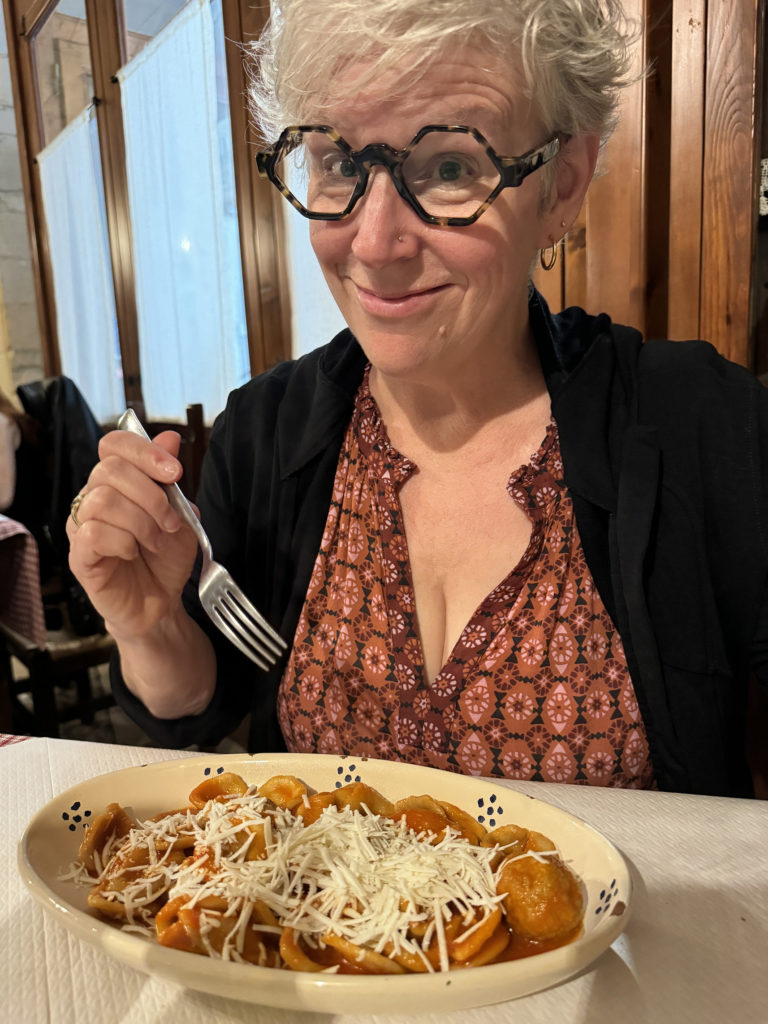
Specifically, I’m in Puglia (pool-ya, not puh-glee-uh), the heel of the boot that is Italy. Tourists from the US rarely visit here, since Puglia doesn’t have any large cities to attract people who want to check things off lists. Puglia has no Roma, no Milano, no Firenze, no Venezia. It does have the archetypal Canus stradalis italii. Street dogs are abundant.
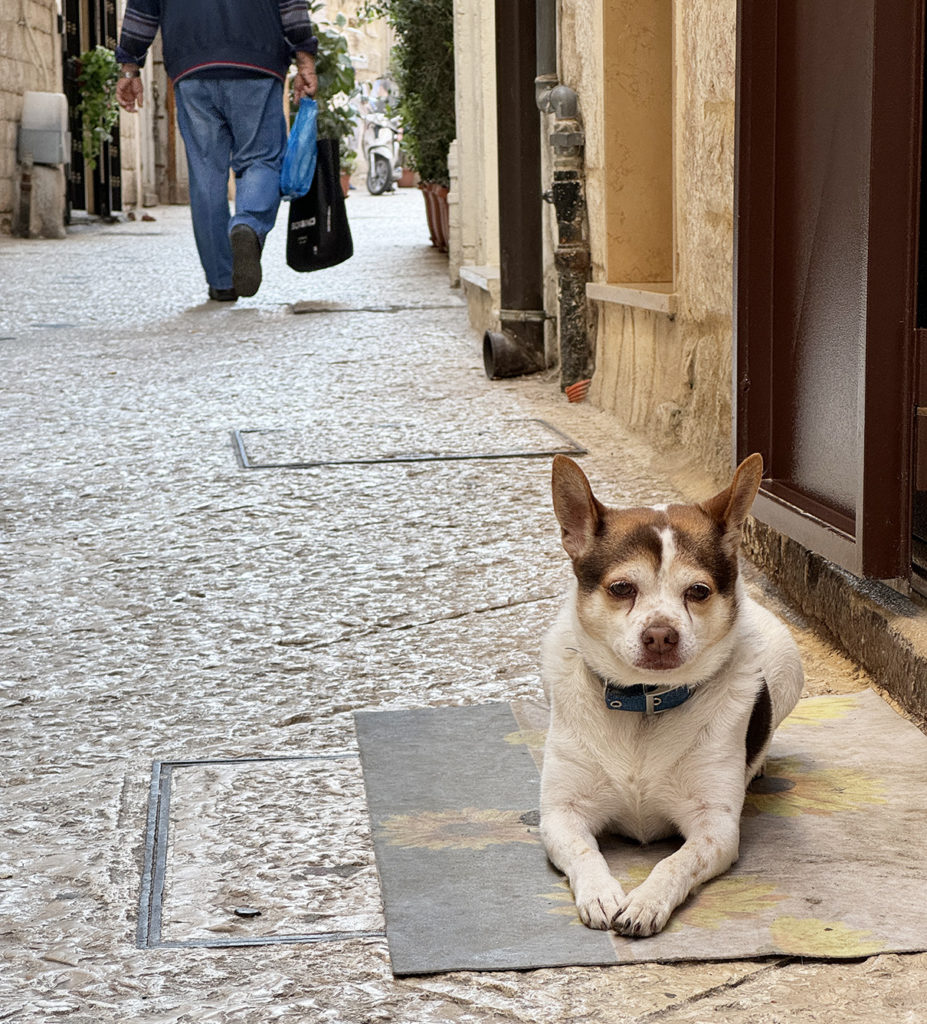
To me, the attraction is that there are no loci of attraction. Bari, the largest city, is nice enough, and the old town is rustically beautiful, now that it has been mostly rid of pickpockets and other unsavories.1 Despite its beautiful cathedrals and crumbly Romanesque architecture, it’s no Siena.
So yeah. The main attraction of Puglia is Puglia.
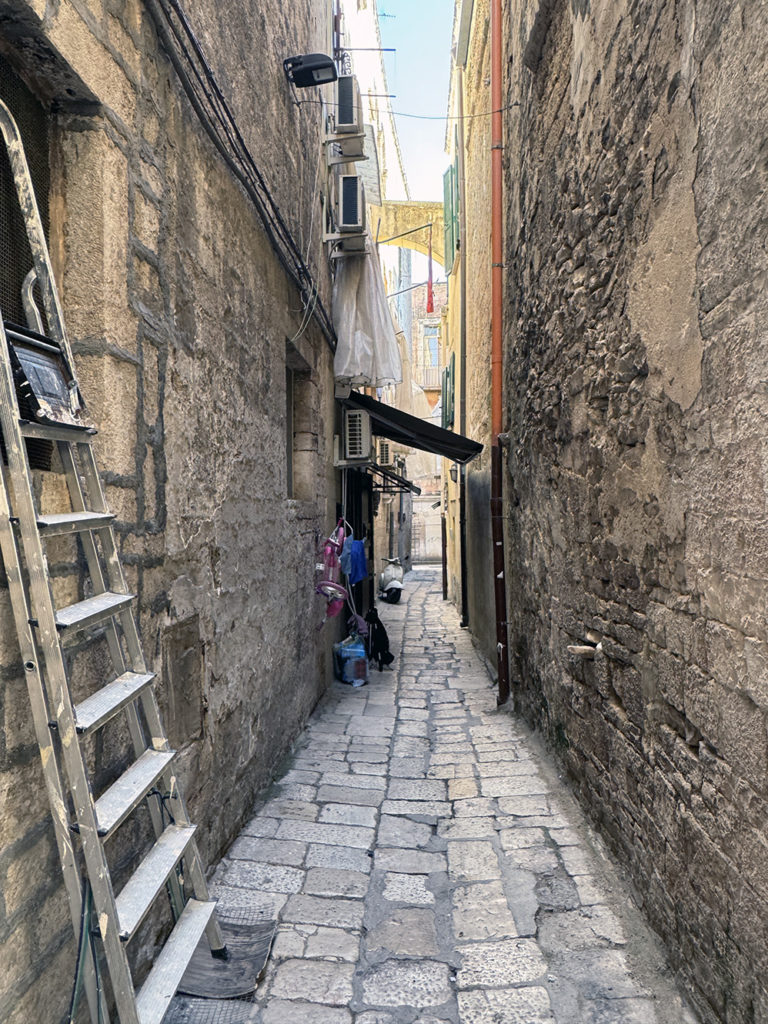
We visited quite a few small cities to enjoy the city centers with their small old centers with winding streets, dead ends. Maps are for the weak. Getting lost is more than half the fun. Cisternino for its meats, Locorotondo for its beauty, Martina Franca for its gateway to the Valle d’Itria, one of the most beautiful places on earth.
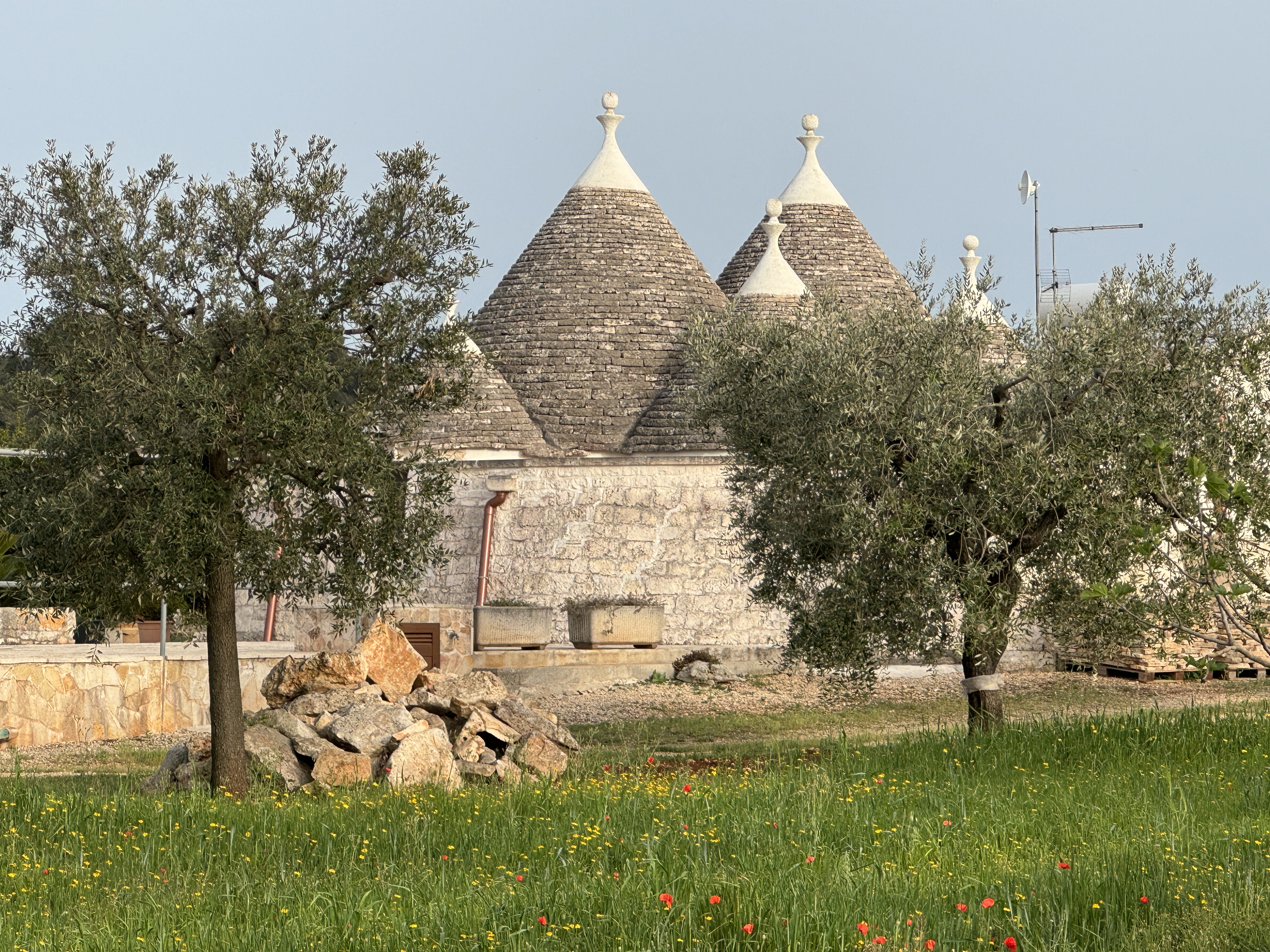
The Itrian Valley is loaded with trulli, conical structures with dry-stacked stone roofs, mostly so they could dissemble them before the barons sent around the tax collectors. Unfinished rooms were not taxed, and since tax evasion is a national sport in Italy, it stands to reason. Just a few key stones removed, shaped like coda di rondine (dovetailed), and the thing would almost collapse.
Tax collector leaves, roof is restacked.
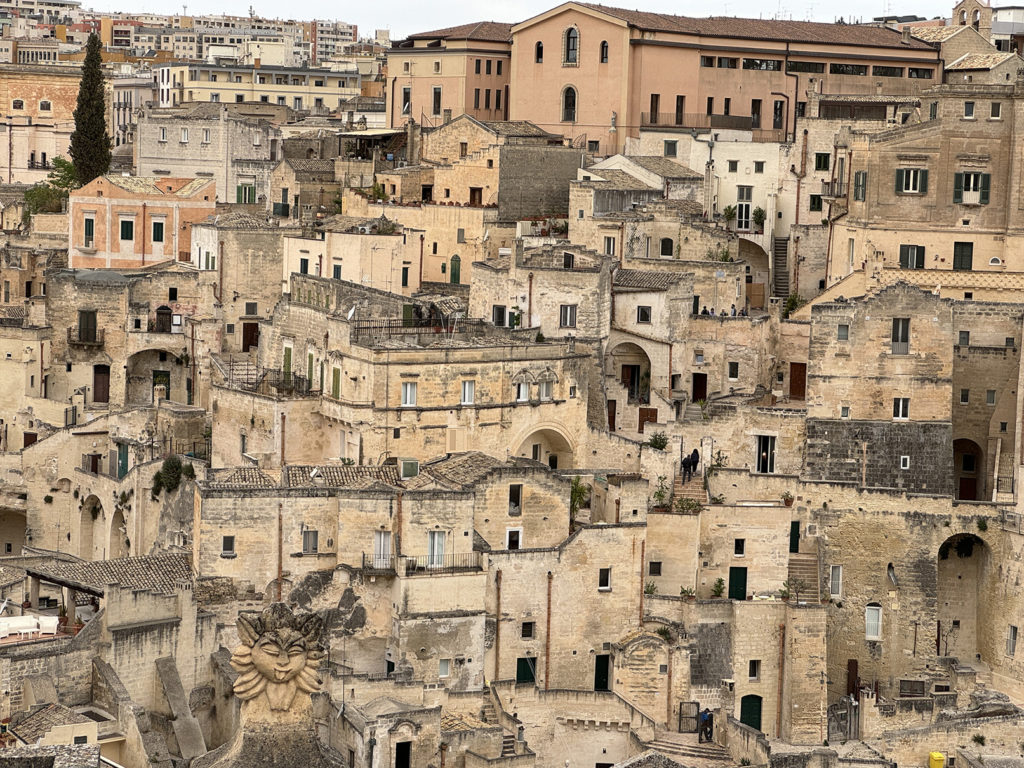
We visited Matera. Technically, it’s in Basilicata, one of the poorest regions in Italy. The sassi are the caves/houses people lived in, with malaria and typhoid a constant threat, so in the 1950s the residents were forcefully evicted to the modern town. A few people still live down in the sassi, and I love the colors and textures. It is also the opening scene of the last 007 film with Daniel Craig, No Time To Die.
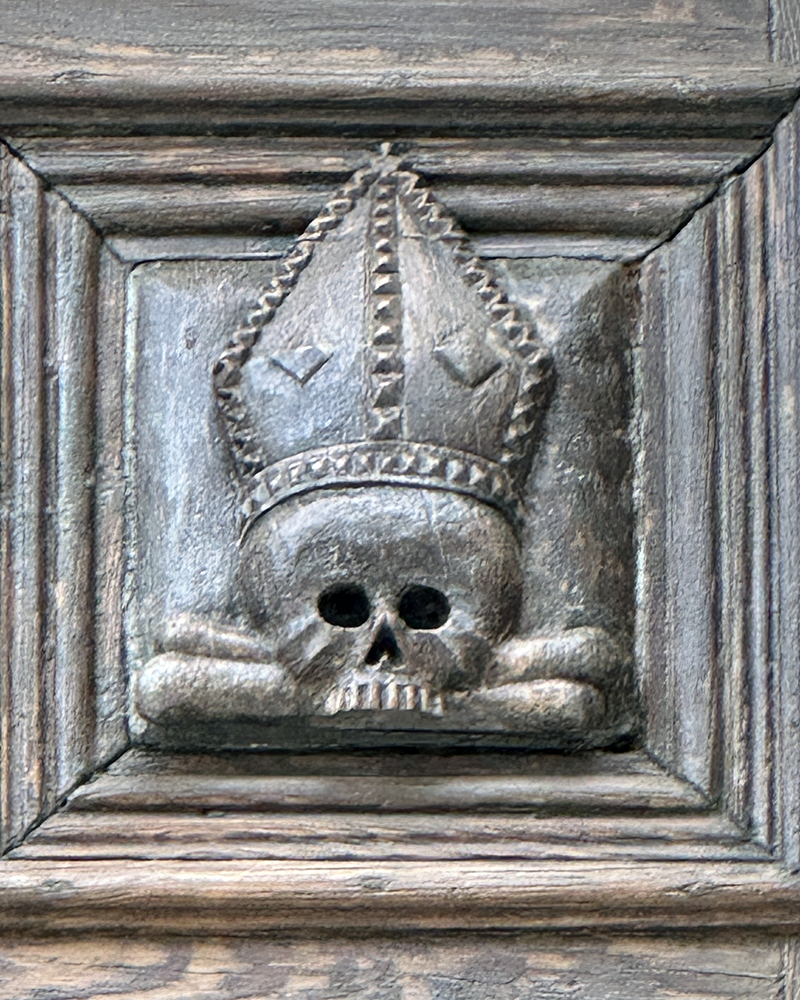
Puglia has a way of interacting with death that is raw and uncut. Compared to the north, I find far more Momento mori imagery. It’s sorta fun in that it’s omnipresent and folksy, and the artists who created the paintings or sculptures or bas reliefs were no respecters of persons. A skull with a bishop’s mitre is as legit on a church door as anything. I can’t help but think they’re equaminius with all signs and images.
All in all, Puglia is poorer in income, but has an extremely rich palimpsest of architecture, culture, language, food, and in my mind, it’s way more interesting than Roma. Because poor people, when push comes to shove, find ways to get things done. Grano arso is a good example.
Grano arso means “burned grain” and originates from the abject poverty inflicted on all the farmers and peasants in the 17th century. The poor would gather individual grains that were toasted or burned by running through the fields of grain, often still smoldering from the farmer’s fires to burn down the chaff. That’s what hunger does to a person.
It turns out it has a nostalgic flavor for many, and after 300 years, you can buy it…in southern Italy, and that’s about it. I’ve never seen it in the US. If you can find grano arso flour, you can make pasta yourself.
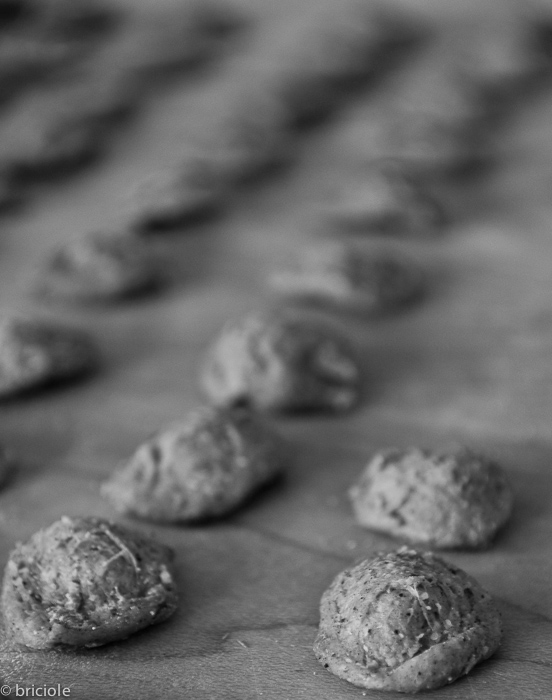
Usually the pasta in Puglia centers around orecchiette, or “little ears.” It’s often cooked with a more bitter southern type of brassica related to broccoli, or with beet or other more bitter greens. If you want to try it, here’s a recipe.
I brought back a few (dozen) kilos of pasta, homemade and otherwise, and a load of grano arso. I’ll wait until Summer when the brassica rape or beet greens or whatever I can find is ready to harvest. Substitutions are a Puglian specialty, through necessity.
Respectfully submitted,
Canoelover
- My friend’s grandfather was murdered in Bari Vecchia back in the 50s. So yeah. Unsavories.
